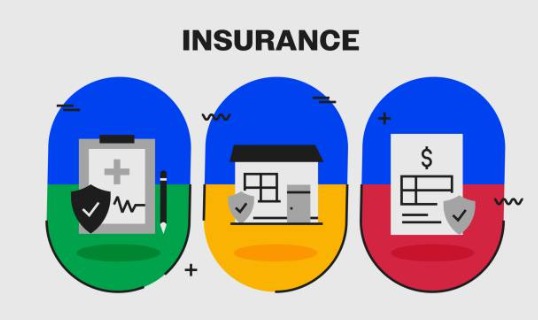Because life happens quickly, the right insurance programs and coverage are essential for financial planning. Insurance allows you to enjoy confidence in your protection, whether for health, vehicles, possessions, or yourself, when things are uncertain. Because there are so many types of insurance available, knowing more about each one can ensure you choose a program that works best for you now and in the future.
What Are Insurance Programs?
Insurance programs are made to protect against unpredictable losses. Under these programs, an insurer and a policyholder reach an agreement, where payments are made regularly in return for help with specific losses. All health insurance programs have their own rules, options, and conditions, which say what needs to be covered and in which situations.
Health Insurance: A Vital Coverage Option

Among all insurance programs, health insurance is surely one of the top ones to have. Since health care costs a lot in the US, every person should have health insurance. There are several types of health insurance, and some cover just emergencies, while others come with preventive visits, seeing specialists, taking prescription medicines, and seeing psychologists.
There are various kinds of health insurance across the US. Many organizations include group benefits as a part of their plans to cut costs for workers. If someone or their family does not have insurance provided by an employer, they can look at the federally-regulated policies offered by the Health Insurance Marketplace through the Affordable Care Act (ACA). For low-income people and the elderly, there are government programs called Medicaid and Medicare, each having particular conditions for eligibility and coverage.
Auto Insurance: Legal Requirement and Protection
Not only is auto insurance wise, but it is important too. Driving education is required by the laws in most places. The purpose of this program is to cover the expenses if a driver has an accident, loses a car by theft, or the vehicle gets damaged. Some of the coverage choices available are liability insurance, collision coverage, and comprehensive coverage to protect your vehicle from different perils.
Be sure to learn what your state requires in terms of insurance programs, but also check how you are personally affected by risk. Those who are regular drivers and, especially, have an expensive car or live in an area with many accidents can benefit from a stronger insurance policy.
Homeowners and Renters Insurance: Safeguarding Your Property

If you own a house or if you are renting, insurance coverage can help guard what’s valuable and inside your residence. Homeowners’ insurance usually protects against any harm from fire, storm, theft, and other stated natural disasters. You may also have protection in case someone is hurt on your property.
A renters’ insurance policy offers the same kind of coverage for possessions and liability for those renting a place, but does not cover the structure because that is the responsibility of the landlord. You can customize coverage through these insurance programs, so your policy works for you and your property’s price tag.
Life Insurance: Planning for the Future
A lot of people disregard or overlook the importance of life insurance for their finances. You’re giving your loved ones financial support if you are no longer living. There are two different kinds of life insurance policies. Term life and whole life. Term life insurance is designed for a selected period, while whole life insurance will cover you for your whole life and grows a cash fund as you pay.
Before getting a life insurance policy, you should look at your debts, the cost of raising children, the repayment of the mortgage, and your paycheck loss, if any. It is also possible for some individuals to regard life insurance as a means of managing their estate.
Disability and Long-Term Care Insurance: Protecting Income and Independence
These programs will replace part of your income if you become sick or hurt and cannot work. Many short-term health policies are good for only a few months, whereas some long-term policies go up to the retirement date. Particularly, those who do not get much coverage through their job or who are self-employed need these policies.
With long-term care insurance, you may receive assistance paying for care in assisted living, nursing homes, or with in-home care, all of which are normally not fully covered by health insurance or Medicare. As people are living longer and medical costs go up, these insurance plans are more likely to be necessary.
Choosing the Right Insurance Programs
The fact that there are so many insurance programs makes it hard to pick the best one. Look at your income, the state of your health, what you and your family need, your lifestyle, and your goals for managing money. Check the policies by their available coverage, pricing, items that are not covered, and the way claims are handled. Using an insurance professional or checking online tools will allow you to make a wiser choice.
Every insurance policy offers a special benefit and helps close a certain hole in your finances. Think of insurance as something that can be adjusted to meet your needs as you go through different stages of life.
Final Thoughts
Before making any financial decisions, it is important to learn about the kinds of insurance programs in the US. Every type of program is different, each offering unique coverage for the needs of health, auto, life, and property. If you buy insurance plans with proper protection, you are not only protecting your possessions, but you are also giving stability and security to yourself and those close to you.




Pingback: Insurance Degree Specializations: Customize Your US Education
Pingback: Insurance Networking: Connect with US Industry Professionals - Education Hub